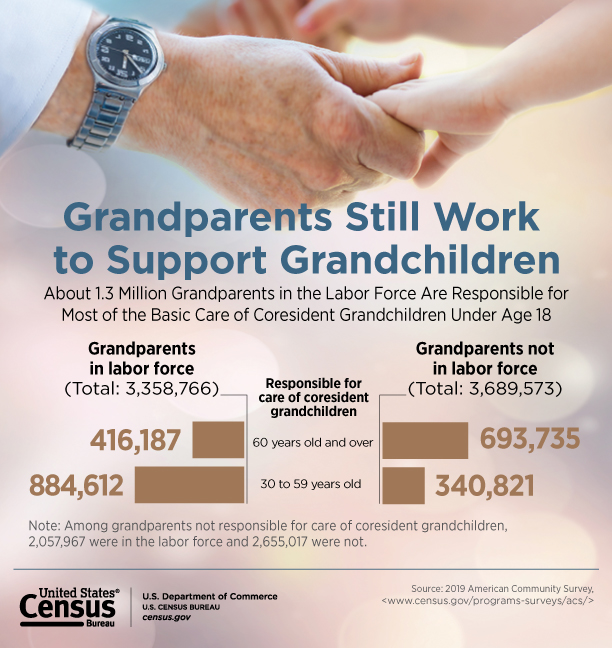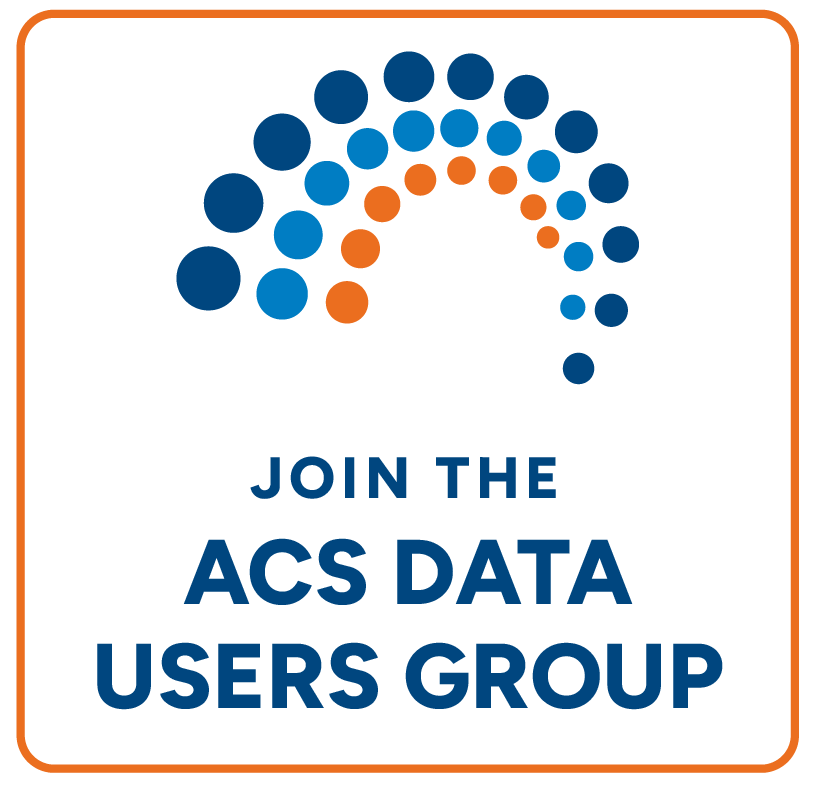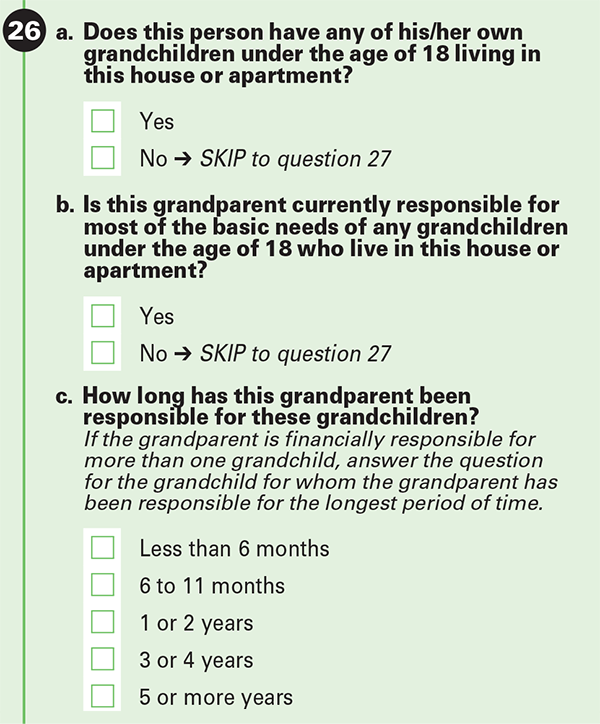Provide Assistance to Families
We want to know more about families, particularly those where grandparents care for grandchildren, along with data about the ages of children, household income, disability, and poverty status. This information helps communities enroll eligible families in programs designed to assist them, such as the Children's Health Insurance Program (CHIP), and helps communities qualify for grants to fund these programs. These data are also used to evaluate programs like Temporary Assistance for Needy Families (TANF).
Provide Assistance to Older Americans
Local officials use information about how many people in a community are over a certain age, including whether older Americans are caring for grandchildren, to fund programs and services targeted to reach older adults with the greatest economic and social needs (Older Americans Act).
Understand Changing Households
Information about how often grandparents are responsible for the basic care for grandchildren and how long they have been responsible in combination with information about age, disability, income, etc., helps communities understand if available housing and services are meeting residents' needs.
Infographic: Grandparents Still Work to Support Grandchildren

[Source: U.S. Census Bureau, 2019 American Community Survey]








